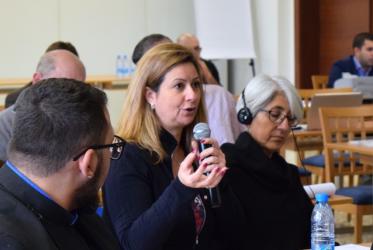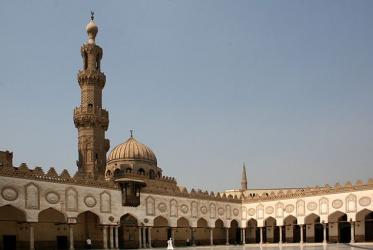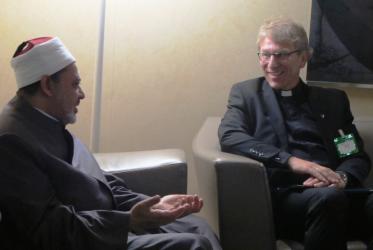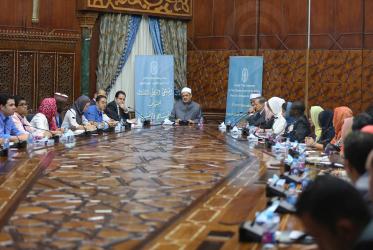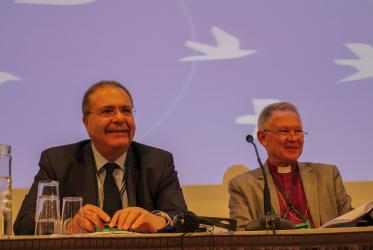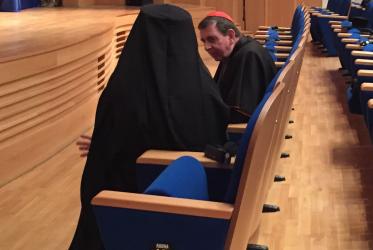Displaying 61 - 80 of 113
“There are no strangers here” – Saint Irenaeus a key to unity?
19 December 2016
WCC general secretary mourns lost lives, calls for end to violence
11 December 2016
Churches’ diaconal action in the Middle East analyzed
01 December 2016
Grand Imam calls for collaboration against violence and poverty
06 October 2016
Al-Azhar: navigating the difficult centre
06 October 2016
WCC welcomes Grand Imam of Al-Azhar
01 October 2016
Dialogue flourishes between WCC, Muslim Council of Elders
30 September 2016
Seminar will address youth engagement, religion and violence
19 August 2016
Pilgrimage and youth
28 June 2016
Is there hope for the Middle East?
25 June 2016
Cardinal Kurt Koch tells WCC News: We have to deepen our solidarity
05 November 2015
WCC sends condolences after airplane crash in Sinai Desert
02 November 2015




